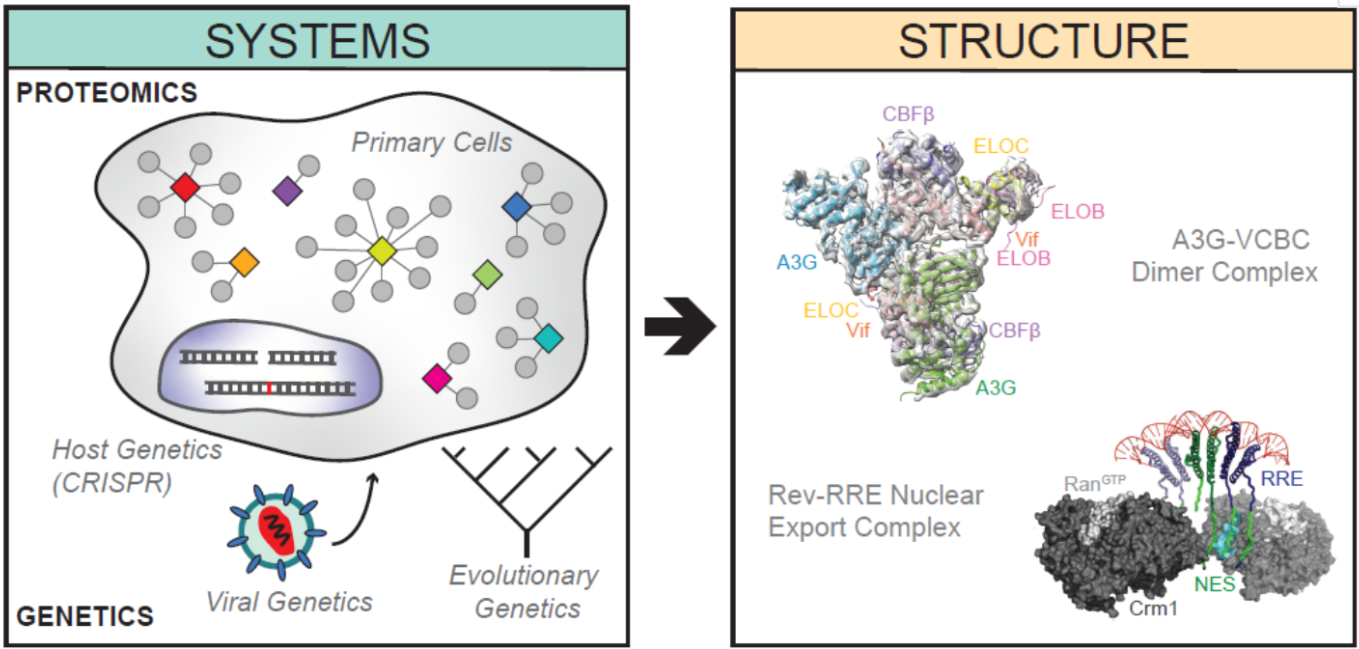
The HARC Center is a multidisciplinary program with the overarching goal to improve our understanding of the interactions between HIV accessory and regulatory proteins and host cellular systems. The scientific focus of the Center is to determine structures of HIV-1 accessory proteins and host factors, by using an integrated Systems to Structure pipeline that includes (1) Discovery, through novel methods of functional proteomics and genetics being developed in the HARC Center, (2) Validation through breakthrough CRISPR methods in primary T cells and macrophages as well as targeted in vivo and in vitro functional assays, and (3) Structure Determination using a synthesis of innovative structural techniques developed in the HARC Center to address the large, flexible, heterogeneous and sometimes membrane-associated systems we study.
The HARC Center has existed in several iterations since 2007 and comprises 20 Investigators, including 11 from previous iterations. Investigators come from 6 institutions: University of California, San Francisco (UCSF), the Gladstone Institutes, the University of California, Berkeley (UC Berkeley), the University of North Carolina at Chapel Hill (UNC), the Fred Hutchinson Cancer Research Center (FHCRC), and Northwestern University (NU). The HARC Center is one of five Specialized Centers for Determination of Structures and HIV-host Complexes funded by the NIH AIDS-Related Structural Biology Program at the National Institute of Allergy and Infectious Diseases (NIAID). HARC Members provide expertise within a comprehensive range of biochemical, molecular biological and structural methods, including mass spectrometry, X-ray crystallography, membrane expression, CRISPR, NMR and cryo-electron microscopy.
In conjunction with its research activities, the Center makes new methodologies, tools and databases available to the research community at large, and is active in creating new collaborations with outside investigators.